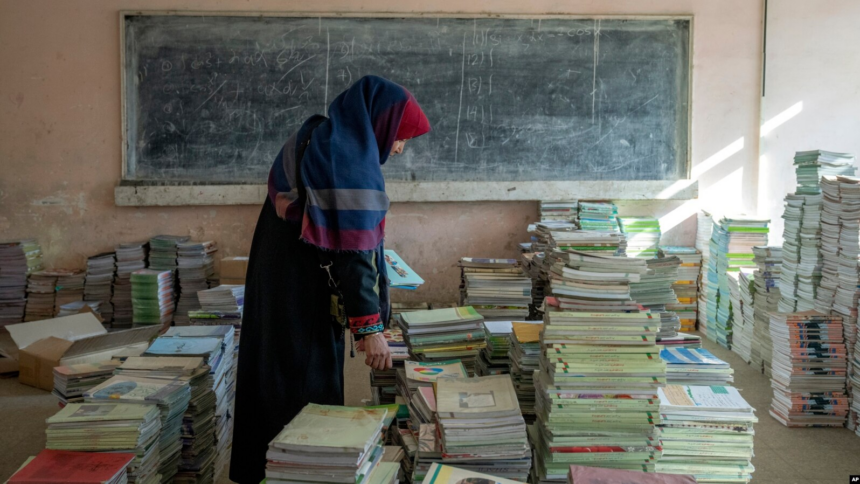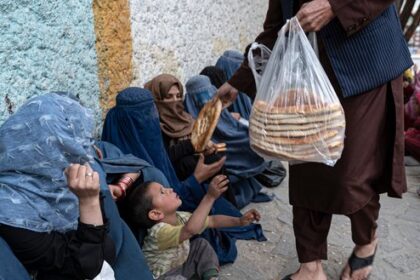RASC News Agency: In a calculated move to further consolidate its authoritarian grip over Afghanistan’s intellectual infrastructure, the Taliban’s Directorate of Information and Culture in Panjshir has announced the formation of a local committee tasked with revising the province’s educational curriculum. The move, presented under the pretext of aligning academic content with “Islamic values,” represents yet another step in the Taliban’s broader campaign to replace modern education with a rigid, ideologically driven system of religious indoctrination. During a meeting held on Sunday, May 18, Abdulhaq Habibi, the head of the Panjshir Institute of Higher Education, called for sweeping changes to the curriculum. He insisted that educational content across all disciplines, including the sciences, must be restructured to conform to what the Taliban consider the foundational principles of Islam. Habibi described the curriculum as a cornerstone of Afghanistani society yet paradoxically framed its purpose not in terms of intellectual development or global competence, but in strict religious alignment.
Following the meeting, the Taliban announced the establishment of a committee to oversee these changes, though, as is characteristic of their governance style, no details were provided regarding the scope, criteria, or transparency of the reforms. What is evident, however, is that this effort is part of a national strategy aimed at transforming Afghanistan’s education system into a centralized vehicle for ideological control. This initiative is not without precedent. In late 2023, the Taliban’s Ministry of Education confirmed it had already implemented revisions to modern science subjects in accordance with what it labeled “national and Islamic culture.” Earlier statements from the Ministry openly declared that any content deemed inconsistent with their interpretation of Sharia law or traditional Afghanistani values would be systematically purged from the national curriculum.
The Taliban’s interference in education has drawn widespread condemnation both domestically and internationally. Critics argue that such policies are not only academically regressive but also deliberately engineered to suppress intellectual diversity and critical thinking. The insertion of hardline ideology into science and academic discourse is seen as a direct assault on the foundations of modern education. This transformation of the curriculum from a tool of empowerment into a mechanism of indoctrination severely limits students’ access to essential knowledge in fields like technology, health, economics, and global history. A recent expose by Foreign Policy described the Taliban’s education model as “a new army in the making” not one armed with knowledge or innovation, but one conditioned to obey and replicate the regime’s extremist worldview. The report warned that the Taliban are systematically converting public schools into madrasa-style institutions, thereby dismantling the intellectual future of an entire generation.
Perhaps most devastating is the impact of these policies on Afghanistan’s women and girls. Since retaking power in 2021, the Taliban have relentlessly stripped female students of their educational rights, banning them from secondary schools and universities under the guise of religious propriety. The curriculum overhaul is almost certain to deepen this gender-based exclusion, embedding misogyny into the very fabric of educational content and institutional policy. These so-called reforms raise urgent and troubling questions: Can a society thrive when education becomes a tool of suppression rather than liberation? Can future generations hope to compete in the global economy when their learning is restricted to dogma and devoid of scientific inquiry?
Human rights organizations and international education bodies have repeatedly called for the restoration of universal access to education in Afghanistan and the preservation of academic freedom. Yet, the Taliban’s ongoing curriculum revision process signals an intentional severing of ties with global pedagogical standards in favor of a narrow, exclusionary vision. The consequences are likely to be catastrophic not only for students currently in classrooms but for the country’s long-term stability and progress. As Afghanistan is pushed further into isolation, the erosion of its educational system threatens to produce a society defined not by innovation and resilience, but by conformity, silence, and intellectual decay. If unchallenged, the Taliban’s curricular agenda will extinguish the last remaining sparks of critical thought in Afghanistani schools and rob the nation’s youth of their right to a future shaped by knowledge, not ideology.






